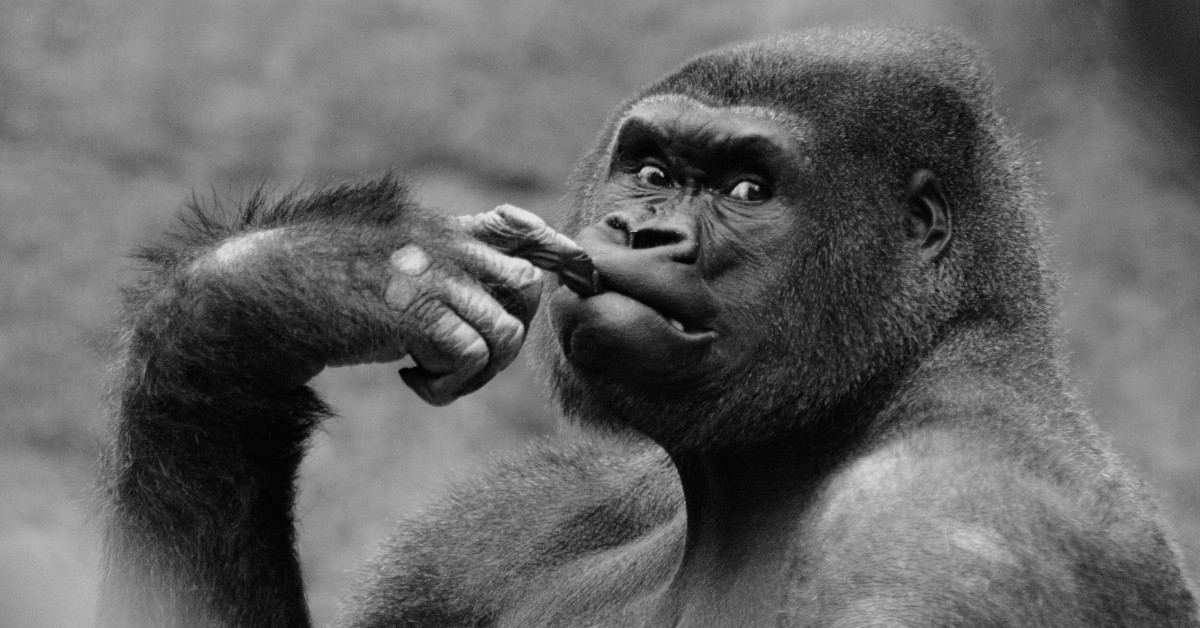While apes can learn sign language and use it to communicate, they have not demonstrated any inclination to acquire new information by asking humans or other apes. They appear to lack the awareness that others may possess knowledge that they do not – a significant characteristic that sets them apart from humans.

Apes are some of the most intelligent creatures on the planet, capable of acquiring sign language, solving problems, and exhibiting empathy. Despite their impressive cognitive abilities, however, apes have not demonstrated the capacity to ask questions. This lack of questioning is one of the key features that sets humans apart from other primates.
During the 1970s and 1980s, some researchers suggested that apes were incapable of asking questions or responding negatively. While multiple published studies have demonstrated that apes are capable of answering questions posed by humans and the vocabulary of acculturated apes includes interrogative words, based on the available research it appears that apes are unable to initiate their own questioning. In conversations with humans – through sign language, for example – only the humans ask questions.
In the 1970s, Ann and David Premack proposed a potentially effective approach to teaching apes how to ask questions: “In principle interrogation can be taught either by removing an element from a familiar situation in the animal’s world or by removing the element from a language that maps the animal’s world. It is probable that one can induce questions by purposefully removing key elements from a familiar situation. Suppose a chimpanzee received its daily ration of food at a specific time and place, and then one day the food was not there. A chimpanzee trained in the interrogative might inquire “Where is my food?” or, in Sarah’s case, “My food is?” Sarah was never put in a situation that might induce such interrogation because for our purposes it was easier to teach Sarah to answer questions”.”
A decade later the Premacks wrote: “Though she [Sarah] understood the question, she did not herself ask any questions—unlike the child who asks interminable questions, such as What that? Who making noise? When Daddy come home? Me go Granny’s house? Where puppy? Toy? Sarah never delayed the departure of her trainer after her lessons by asking where the trainer was going, when she was returning, or anything else.”

Despite their notable accomplishments, other chimpanzees, including Kanzi and Panbanisha, whose behavior researchers observed also have not displayed any aptitude for asking questions. Joseph Jordania at the University of Melbourne has postulated that the capability to ask questions might be a critical cognitive threshold that distinguishes human intellectual abilities from those of other apes. Jordania posits that asking questions is not a matter of using syntactic structures, but rather a function of cognitive capability.
Jordania proposed the Latin maxim “Interrogo ergo Cogito” (I ask questions, therefore I think), and viewed the emergence of questioning behavior in human evolutionary history as the inception of human cognition and language.
Jordania’s theory is supported by studies that demonstrate the importance of the prefrontal cortex in questioning. The prefrontal cortex is responsible for many of the higher-order cognitive functions that humans possess, including planning, decision-making, and problem-solving. This brain region is also associated with curiosity and the desire to explore and learn. In apes, the prefrontal cortex is much smaller than in humans, which could explain their lack of questioning ability.

Another potential explanation for apes’ inability to ask questions is their lack of “theory of mind.” Theory of mind is the ability to understand that others have beliefs, desires, and intentions that are separate from one’s own. This ability allows humans to anticipate and interpret the behavior of others and to adjust their own behavior accordingly. In contrast, apes may not fully comprehend that other entities may possess knowledge that they do not.
Research findings indeed point into the direction that the ability to ask questions is a crucial cognitive threshold that distinguishes human intellectual abilities from those of other apes. While apes possess impressive cognitive abilities, they lack the cognitive capabilities to initiate questioning. Further research into the underlying neural mechanisms of questioning may help to shed light on this fundamental aspect of human cognition.
Sources: 1, 2, 3, 4
